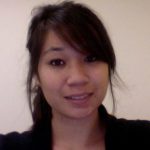
At the time of writing this post, it’s been a little over a week since the Digital Library Federation (DLF) Forum, and it’s been a full week of processing what was shared, reframing priorities, and asking questions (so many questions!). I’m not even close to any answers or ways forward, though I don’t think I need to be. Suffice it to say, the presenters and attendees challenged me. From the keynote at the DLF Liberal Arts College pre-conference with Chris Bourg and Cecily Walker to the #ourDLF closing event, DLF presenters and attendees were engaged in thinking about the broader context of the work that we do, framing it within cultural, social, and political contexts. This is what made DLF more different than any other conference that I have attended. This conversation wasn’t being had only in the keynote, closing, or individual sessions; it was being had all over the place. Every session, even those that were more technical, had me thinking about what it means to be an information professional that challenges the inherent structures of power and biases in the systems we develop, the vocabularies we use, etc.; what it means to be ethical and meaningful in praxis; about how to ensure inclusivity when developing services for our communities.
[pullquote1 align=”left”]How do we diversify not only the record, but also how the record is described and disseminated?[/pullquote1]Instead of providing a narrative overview of sessions that particularly rocked (though all of them did), I’m going to take a different approach and share my experiences at DLF in the form of questions that the Forum inspired in me. These questions were developed within the context of my position as an archivist working in a special collections at an academic institution.
- How should information professionals design our description to be reflective of Special Collections’ culture, collections, donors, and users?
- How do we reflect and build our collections, systems, and internal procedures with a mind to change (in language, etc.) and diversity?
- How do we diversify not only the record, but also how the record is described and disseminated?
- How do we engage the community in the creation of metadata, either in the development of conceptual frameworks or in the actual negotiation of terms?
- How do we ensure professional transparency and accountability in the processes we carry out?
- How could we shift our institutional culture to be receptive of user/community-driven approach to description and access?
- Within the repository, how do we humanize our collections and gird our interactions with donors, researchers, faculty, and students with the concept of collections, not as records or papers, but other people’s belongings? (This concept was shared by Laurie Allen at the DLF Liberal Arts Colleges Pre-conference.)
When I applied for the ARL + DLF Forum Fellowship for Underrepresented Groups, I wrote that I saw DLF as the confluence of all things digital–as it relates to the library, special collections, technical services and systems, and research and teaching. After having attended the Forum, I still see that as DLF’s role, but also now know it as a community that cares about integration–as is defined by Cecily Walker as, “coexisting with and [the] celebration of differences, of taking disparate pieces and fashioning a new whole”–of our collections, our communities, our work, our institutions.
One final takeaway, again from Cecily Walker:
“The only way these collections can begin to matter to our communities, institutions, and our universal whole is if we take the time to make them matter. We do that by developing a deep understanding of how these items matter in the moment, in history. This understanding can’t come from textbooks or historical records alone, they must be connected to the flesh and blood people who keep these memories and experiences alive.” [pullquote1 align=”right”]Thank you to all the attendees for the safe space to think critically, challenge one another, and be okay with sharing messy projects.[/pullquote1]
I hope this statement inspires you and the work that you do as much as it does me.
My gratitude to DLF and ARL for the opportunity to attend the 2015 DLF Forum–my first of, hopefully, many such forums. Thank you to all the attendees for the safe space to think critically, challenge one another, and be okay with sharing messy projects. Cheers to all of those who made this DLF Forum truly exceptional.
